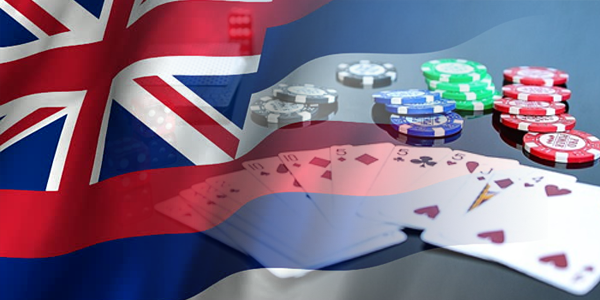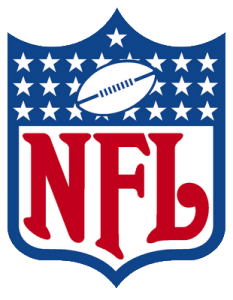Is Online Gambling Legal in the State Of Hawaii?
- Is Online Gambling Illegal In Hawaii State
- Is Online Gambling Illegal In Hawaii Five-o
- Is Online Gambling Illegal In Hawaii Right Now
- Is Online Gambling Legal In Hawaii
- Is Online Gambling Illegal In Hawaii 5-0
There has been talk of legalized online gambling in Hawaii as recently as this year. It had little chance of moving through the legislature, however, and it died early in the year. Hawaiian State Senator Will Espero was the one to introduce SB.677 in January 2017, which was worded to legalize and regulate online gambling. Just as with all other forms of land-based or online gambling, there are no legal casinos in Hawaii. This is because all forms of casino betting are strictly illegal. As such, players based on the islands are not permitted to register or bet at sites, whether they are based in the state, in another part of America, or offshore. Hawaii currently has no casinos, and it’s unclear where legal sports wagers will be made. The online gambling industry in the US is growing even faster than the land-based market. A number of states have outright legalized internet casino games and sports betting. HI Online Gambling FAQs. Can I Play Real Money Casino Games Online In Hawaii? You certainly can. There are no laws against Hawaii online casinos that are based offshore. There are 100’s of slots with varying themes and graphic options that have all been digitized by software companies for these websites. The only two states in the US that completely ban all forms of gambling, including online sports betting, are Hawaii and Utah. Local jurisdictions have the power to decide whether or not to allow gambling, even if it is considered legal at the state level.
Of all the States, only Hawaii and Utah have such comprehensive anti-gambling legislation. In the Island State, only social poker games where nobody makes a profit (not even from selling beverages) are allowed. That is it, no casinos, no charity gambling, no lottery and no sports. This article explains the Hawaii gambling laws (or rather anti-gambling laws) in detail.

First up below, a quick-fire overview of the history of gambling in this State can be found. This consists of heavyweight legislation and many busts. Next a game-by-game guide, which covers the specifics of what you can’t do. After that a legislative timeline can be found, including the key passages from the statute books. Finally, I have summarized the key points – and then speculated on how gambling in Hawaii might look in the future.
Chumba Casino Hawaii – Sweepstakes Casino Option
Chumba Casino is available in Hawaii and gives players the chance to play online casino games for real cash prizes.
Hawaii Gambling Laws – A Brief History

This State was formed in 1959 – and gambling has been against the law ever since. In pre-State colony days, there was a horse-racing scene, and I am sure many bets were laid on the black market on those races. These declined and stopped in the 1940’s and efforts to legislate have met with no success since.
Periodically, headlines scream of big busts of just about every kind of gambling you can think of. These include a ‘Lottery Queen’, a major indicted in connection gambling extortion, a sports-betting ring getting busted and the seizure of gambling machines. If nothing else this shows that there is still a significant appetite among Hawaiians for gambling, even if their government shows no signs of budging on the legal perspective.
Most recently, there have been bills introduced in 2010 and 2012 requesting that a study be done into setting up a casino and the regulation of online poker respectively. These caused a stir in the media – but did not get far through the legislative process before being killed off.
Hawaii Gambling Laws – An Overview of Which Gambling Games Are Legal
Casino Games: No, like most forms of gambling, this is strictly against the law in Hawaii – the closest legal US casino by distance would be in the State of California.
Online Casinos: No, online gambling is covered by the broad definition of what constitutes a gambling game in this State. Basically any game with a chance element, and some risk / reward, even if skill can materially affect the outcome.

Live Poker: Yes, you can play poker socially in Hawaii. There are strict rules surrounding social poker games. No profit can be taken by any house or individual organizer. This extends to profiting by selling food or beverages, which rules out pub leagues which are popular even in conservative States like Utah where poker is also social-only.
Online Poker: No, there have been some recent bills which would regulate online poker games – though these have not made it far through the legislative process before being killed off.
Sports Betting: No, there are no racetracks or pari-mutuel betting machines. Hawaii has a rich history of horse racing, starting in the 1800’s and continuing until the end of the 1940’s when this died out.
Lottery Betting: No, this is one of the few states which does not have a lottery nor participate in any inter-State lottery programs.
Bingo Games: No, there are not even any provisions for charitable raffle or bingo gambling in Hawaii.
Hawaii Gambling Laws – Timeline of Key Statutes
The main gambling provisions have remained largely unchanged since the State joined the US in 1959. Unlike in other States, any amendments have strengthened the anti-gambling rules – rather than allowed certain types of gambling to occur. Like many legal definitions, the ones Hawaii uses is broad enough to make sure that fans of any particular game can’t say that they are not covered. Here are the key pieces:
Is Online Gambling Illegal In Hawaii State
First their broad definition of gambling:
[su_quote cite=”Chapter 712-1220″ url=”http://www.capitol.hawaii.gov/hrscurrent/vol14_ch0701-0853/hrs0712/hrs_0712-1220.htm”]A person engages in gambling if he stakes or risks something of value upon the outcome of a contest of chance or a future contingent event not under his control or influence, upon an agreement or understanding that he or someone else will receive something of value in the event of a certain outcome.[/su_quote]
Then, just in case you were about to play the ‘skill game’ card, their definition of a Game of Chance puts that one to bed:

Is Online Gambling Illegal In Hawaii Five-o
[su_quote]”Contest of chance” means any contest, game, gaming scheme, or gaming device in which the outcome depends in a material degree upon an element of chance, notwithstanding that skill of the contestants may also be a factor therein.[/su_quote]
There is no getting around it, even the definition of a gambling device (also illegal) is broad enough to cover just about anything.
There have been some recent attempts at legislation for gambling, though to date these have been killed off very early in the legislative process and have not gotten to committee – let alone had the opportunity to be put to the popular vote. Here are some examples:
1959: A bill is introduced to bring back Horse Racing via a track on the island of Maui, this did not pass the house of representatives.
2010: Separate bills to investigate the setup of a committee to oversee an investigation into the viability of casino gambling and a proposal to set up a State lottery. Neither bill made it as far as the floor.
2012: A bill (number 2242) requesting the setup of another committee, this time to look into the regulation of online poker is submitted – again, it is killed off before there is a chance of a serious debate.
Talk of yet more bills periodically gets the poker press excited. Experienced commentators suggest otherwise, that the opposition to gambling is strong enough in the Island State to ensure keep the status-quo for the foreseeable future.

Hawaii Gambling Laws – Summary and a Look into The Future
Is Online Gambling Illegal In Hawaii Right Now
Along with Utah, this is the strictest anti-gambling State of all, with only social poker games allowed for residents. One thing to bear in mind is that individual participants in gambling games are rarely affected by the regular busts and crack-downs – which are aimed at the organizers and profiteers. Residents wishing to gamble at offshore operators may be breaking the law in the strict sense, though they are doing so with minimal risk of being personally prosecuted. Please take legal advice before making your own decision on whether to play online poker at offshore sites from Hawaii.
The most likely future scenario for Hawaii is no change. If there is an (unlikely) drop off in tourism income then change might be possible – at the moment this State appears very happy with the current no-gambling situation.
Is Online Gambling Legal In Hawaii
Useful Resources:
State Laws
Is Online Gambling Illegal In Hawaii 5-0
Wiki History (mentions horse racing)
State legislature